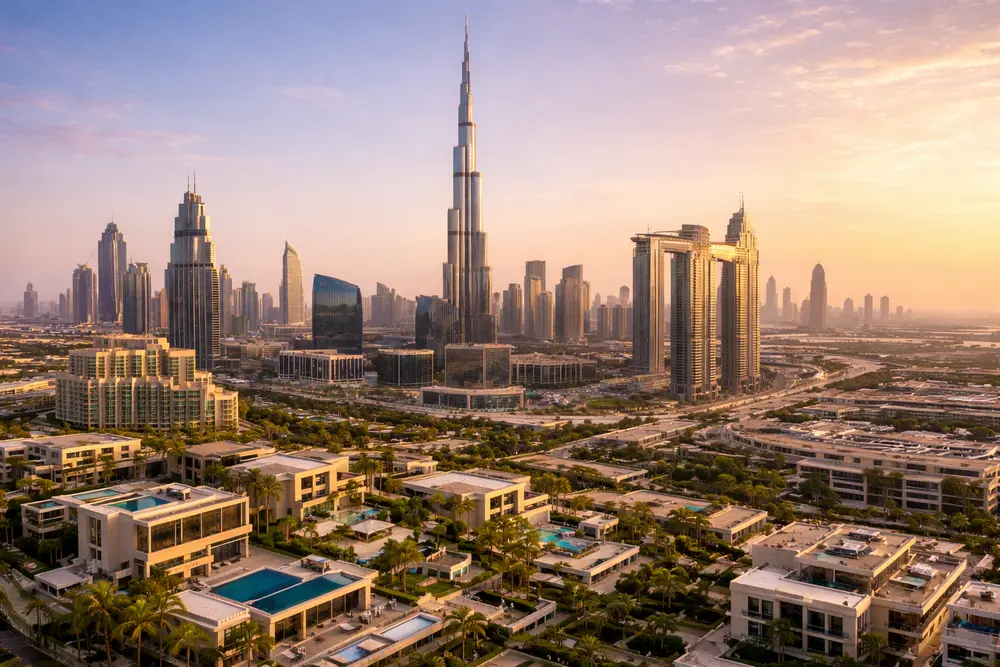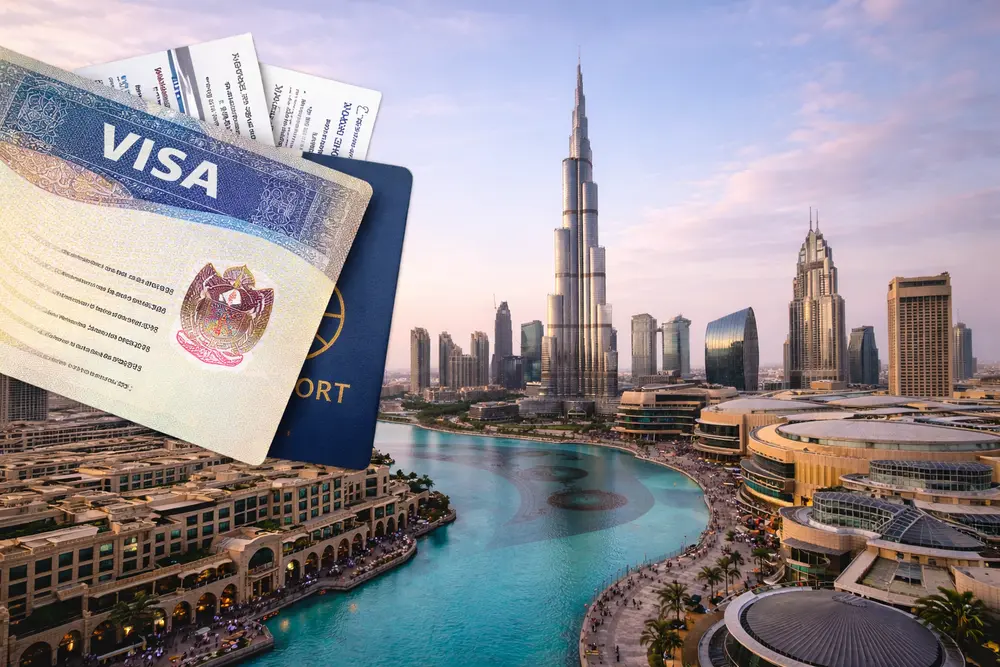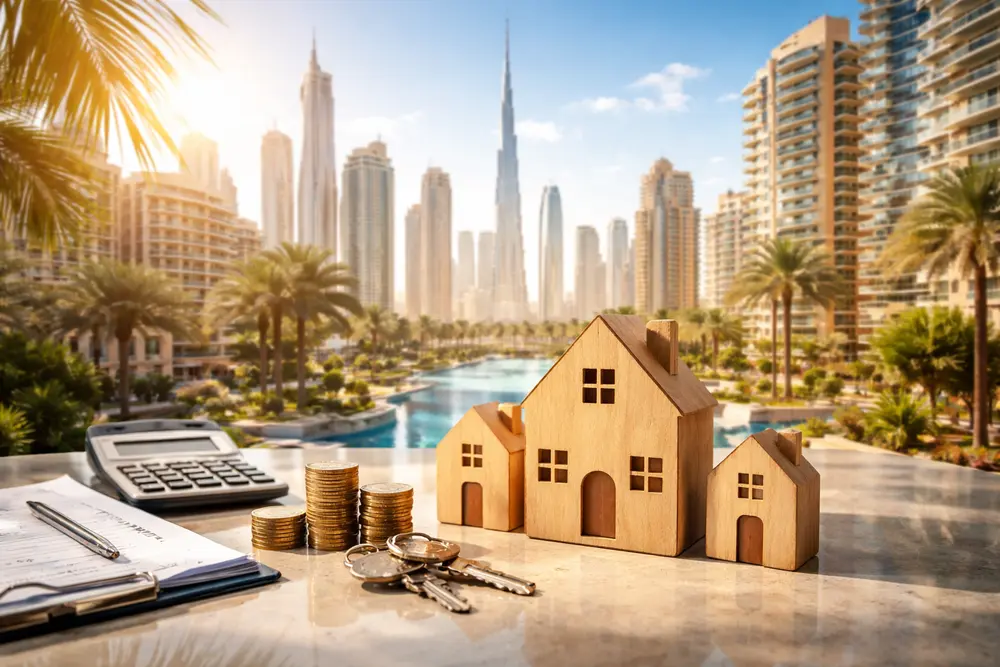What Factors Influence Real Estate Prices in Dubai?

Ever wondered why property prices in Dubai seem to fluctuate? It’s more than just location or aesthetics—it’s a complex interplay of economic, social, and global factors. Dubai’s real estate market is vibrant and dynamic, shaped by both local policies and international trends. For investors, understanding these factors isn’t just helpful—it’s essential. At Homeland Realty, we don’t just sell properties; we guide you through these intricacies to ensure informed and profitable decisions. In this article, we’ll break down the key elements affecting real estate prices in Dubai, with real-world examples and practical insights.
1. Inflation: The Hidden Driver of Price Changes
Inflation impacts real estate prices in subtle but powerful ways. When inflation rises, the cost of materials, labor, and services also increases, pushing up property prices. For example, in Dubai, rising construction costs in 2023 led to a notable price hike in both off-plan and ready properties.
At Homeland Realty, we advise clients to factor in inflation trends when planning investments, ensuring they buy at the right time to maximize value.
2. Interest Rates and Mortgage Affordability
The UAE Central Bank’s decisions on interest rates have a direct effect on property affordability. Higher interest rates make mortgages costlier, reducing buyer demand and potentially lowering prices. Conversely, low rates spur purchasing activity, driving prices up.
Homeland Realty’s experienced team monitors interest rate trends and advises clients on optimal buying strategies, particularly for those considering financing options.
Related article: Top Dubai Mortgage Offers for Non-UAE Residents
3. Supply and Demand: The Core Equation
Dubai’s real estate market is highly sensitive to shifts in supply and demand. Oversupply often leads to reduced prices, while limited inventory in high-demand areas, such as Downtown Dubai or Palm Jumeirah, can drive prices sky-high.
Our deep knowledge of Dubai’s neighborhoods helps investors navigate these trends, identifying properties with the best appreciation potential.
4. Government Policies and Regulations
From visa reforms to foreign ownership laws, Dubai’s government policies significantly impact the real estate market. Initiatives like the Golden Visa program have attracted high-net-worth individuals, boosting demand for luxury properties.

5. Global Economic Trends
Dubai is an international hub, and global economic conditions often ripple through its real estate market. For instance, fluctuations in oil prices or geopolitical tensions can influence investor confidence and property prices.
Homeland Realty’s expert consultants provide clients with insights on how global factors might affect their real estate decisions.
Related article: Dubai Real Estate Market Forecast 2025: Trends and Predictions
6. Economic Cycles: Booms and Corrections
Every real estate market experiences cycles of growth and correction. Dubai’s market has seen rapid growth during economic booms and temporary dips during global financial crises.
Understanding where the market stands in its cycle is key to timing your investment. With 17 years of experience, our CEO, Hamed Ghelichkhani, ensures Homeland Realty clients get the most accurate advice on market timing.
7. Infrastructure Development and Accessibility
New infrastructure projects, such as metro expansions or major landmarks, can drastically increase property values in nearby areas. For example, the announcement of Expo City Dubai sparked a surge in property demand in surrounding districts.
Homeland Realty specializes in identifying such growth hotspots, ensuring clients capitalize on infrastructure-driven price increases.
Related article: Top 5 Dubai Developers for Investment Opportunities in 2025
8. Investor Sentiment and Market Perception
Buyer confidence plays a significant role in real estate prices. A positive perception of Dubai as a safe and profitable destination attracts global investors, boosting demand. Conversely, any market uncertainty may cause a temporary slowdown.
Homeland Realty focuses on building trust and confidence by providing clients with factual insights and transparency, ensuring they feel secure in their investments.
9. Lifestyle Trends and Preferences
As Dubai grows into a global lifestyle hub, preferences for luxury living, sustainable designs, and smart home technologies influence property demand. Developments featuring these trends often see higher appreciation rates.
Our consultants at Homeland Realty help clients identify properties aligned with these trends, ensuring their investments remain future-proof.
Conclusion
Understanding the factors influencing real estate prices in Dubai isn’t just about staying informed—it’s about making smarter investments. Whether it’s inflation, government policies, or infrastructure developments, each factor plays a crucial role. Homeland Realty Real Estate is here to guide you through these intricacies, ensuring your investments align with your goals and the market’s realities.
Ready to explore Dubai’s real estate opportunities? Contact us today or browse our off plan projects in dubai to begin your journey.
FAQs
How does inflation directly affect property prices in Dubai?
Inflation increases the cost of construction materials and services, pushing property prices upward. It also impacts purchasing power, influencing market demand.
Are property prices in Dubai influenced by global economic factors?
Yes, Dubai’s position as a global city means that factors like oil prices, currency exchange rates, and international investor confidence can significantly affect the market.
How can Homeland Realty help me navigate price fluctuations?
Homeland Realty combines market expertise, data analysis, and personalized advice to guide clients through the dynamic real estate landscape in Dubai.
Does supply and demand affect all areas of Dubai equally?
No, premium areas like Downtown Dubai or Palm Jumeirah often maintain higher demand, even during market slowdowns, due to their unique appeal and limited supply.
Read more:
Get In Touch
Latest Blogs

How to Build Wealth Through Property Investment in Dubai
Apartments for Rent in Dubai Silicon Oasis: Area Guide, Amenities, and Rental Insights

Dubai Tourist Visa Rejections: Complete Informative Guide

Etihad Rail Map: Connecting Every Town and City in the UAE’s New Railway Network

